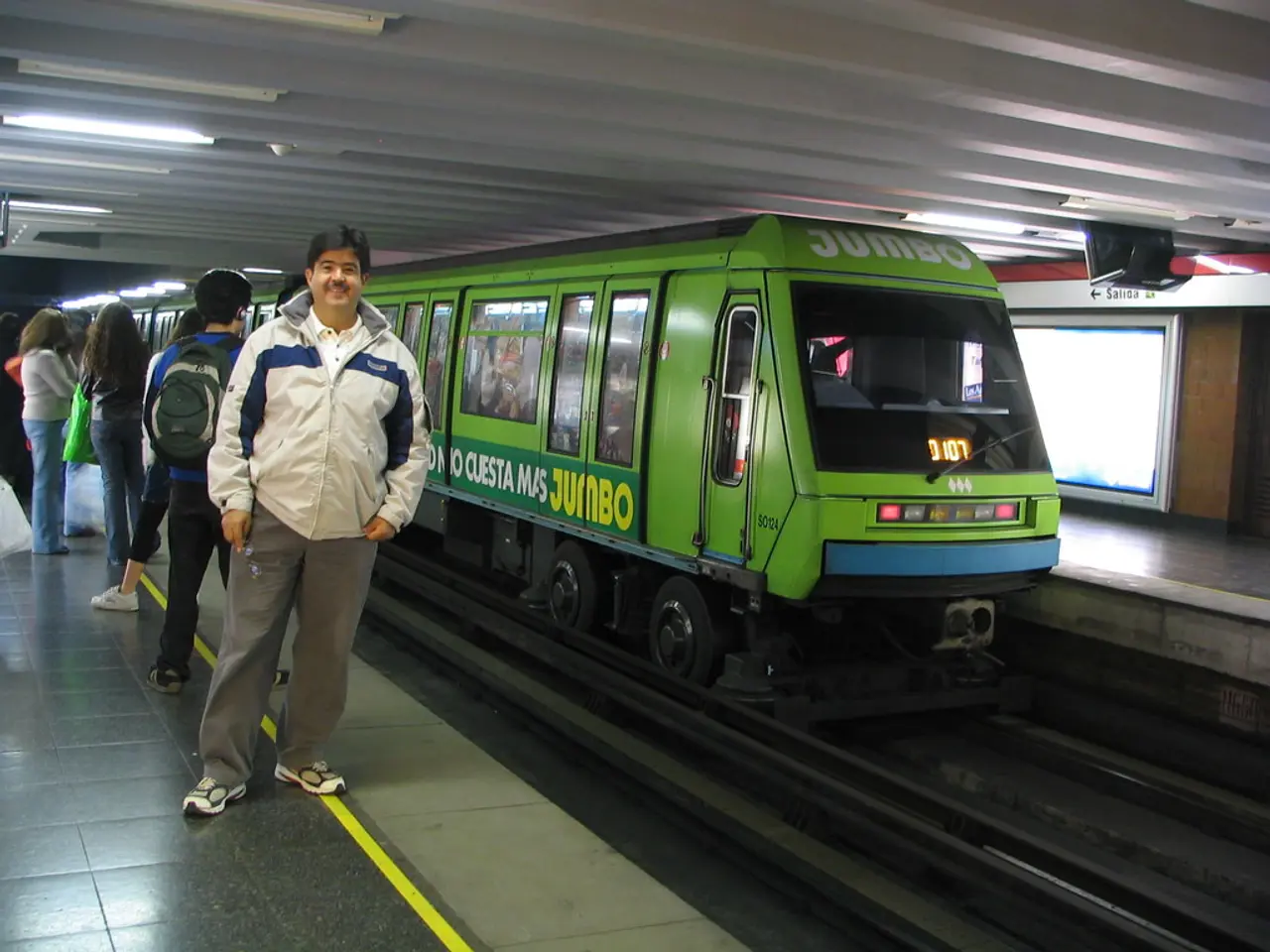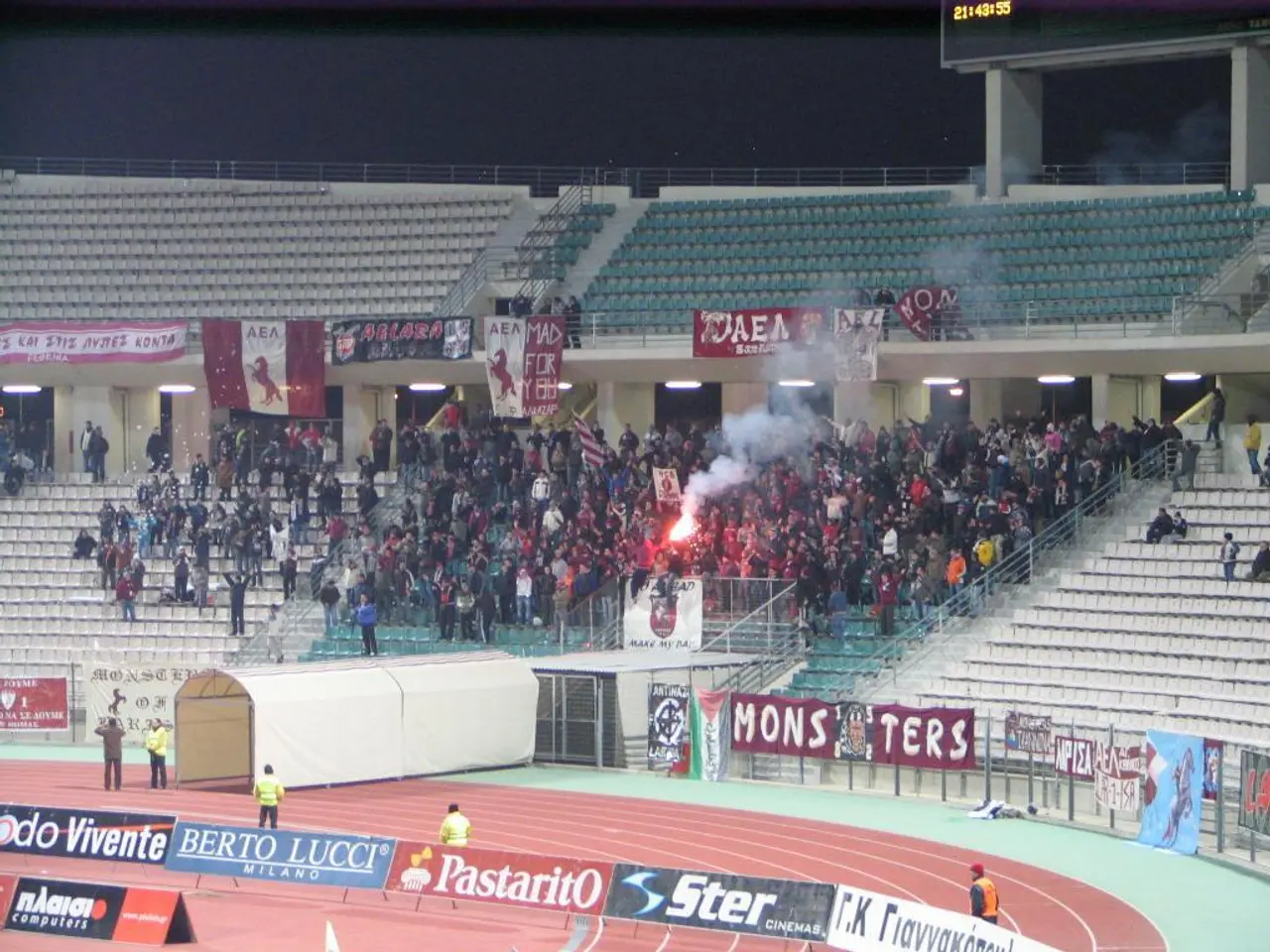Read it carefully, Mr. S-Bahn!
In the heart of Berlin, the S-Bahn network has been facing an escalating issue of disruptions, causing significant inconvenience to passengers. According to B.Z. reporter Torsten Hasse, S-Bahn disruptions increased by 14% in the first half of 2025 compared to the previous year.
The main concern for passengers is the frequent disruptions that lead to delays, affecting their ability to reach their destination on time. These disruptions have resulted in an endless series of police and emergency medical service interventions. Delays ranged from five to 30 minutes due to switch or signal failures, staff shortages, and abrupt train stops.
In response to these disruptions, Peter Buchner, the S-Bahn chief, is being directly addressed by Torsten Hasse. However, Buchner denies responsibility for these disruptions.
In an effort to address this issue, the current measures aim to reduce S-Bahn disruptions and improve the passenger experience in Berlin. This includes extensive infrastructure upgrades, replacement transport services, real-time travel information, and careful planning around construction work.
Ongoing construction and renovation projects aim to modernize tracks, signal boxes, and control systems on key routes, which should enhance long-term reliability and operational flexibility. For example, the Berlin-Hamburg railway line is undergoing a major overhaul from August 2025 to May 2026, with over 180 km of track and 28 stations modernized. During this period, regional rail traffic will be replaced by extensive bus services to maintain connectivity, and real-time updates will be provided via the DB Navigator app and other platforms.
In Berlin’s S-Bahn network, disruptions related to track work near Berlin Brandenburg Airport (BER) prompted service suspensions from late July to early August 2025 on lines S9 and reductions on S45. To mitigate passenger inconvenience, authorities arranged replacement buses departing from airport areas and recommended travelers consult the Verkehrsverbund Berlin-Brandenburg (VBB) for real-time info and planning tools.
Despite occasional disruptions caused by incidents such as sabotage or strikes, Deutsche Bahn and local transit agencies focus on guaranteeing alternative transport options and timely communication to reduce impact on passengers.
In July 2025, problems occurred on 32 out of 40 S-Bahn trips, affecting the entire city of Berlin. In the past, passengers could go to a station and get on a train without checking for disruptions. However, checking disruption notifications beforehand is now necessary to avoid worsening disruptions.
In the month of July 2025, a 24-hour disruption occurred in the eastern part of Berlin due to an unmanned control center at Schoeneweide. Traffic interruptions also occurred.
These coordinated infrastructure investments, replacement transport services, and enhanced real-time travel information measures represent the current strategy for minimizing S-Bahn disruptions and improving passenger experience in Berlin. Passengers are encouraged to stay informed and plan their journeys accordingly.
- In light of the escalating disruptions in the S-Bahn network, the industry of transportation, including public-transit, is under pressure to address the issue and improve the service.
- The finance sector might be influenced by the ongoing disruptions in Berlin's S-Bahn, as they could lead to a decrease in productivity and an increased burden on emergency services, potentially resulting in additional costs.




